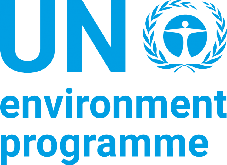This year’s International Day of Clean Air for blue skies features a call for collective action to tackle air pollution, which claims almost 7 million lives a year.
A key part of that process, say experts, is creating solid partnerships, increasing regional cooperation and boosting investments to make the world’s air cleaner.
The United Nations Environment Programme (UNEP) has been leveraging those principles to help the countries of Latin America and the Caribbean counter air pollution, which remains a serious issue in the region.
UNEP activities in support of the region's countries include capacity building for comprehensive and effective air quality management through working sessions with experts and facilitating the exchange of experiences between countries.
Some of the issues addressed have been the development of regulatory instruments and the strengthening of legal frameworks for the adoption of ambient air quality standards and the reduction of pollutant emissions, the development of sectoral programs and strategies, and air quality monitoring programs, including the use of low-cost alternatives.
"The actions carried out by UNEP, as well as those by countries and partners in the region, demonstrate the commitment that everyone can make to collectively reduce atmospheric pollution and safeguard the right to a healthy environment,” said Juan Bello, UNEP's Director for Latin America and the Caribbean. “We invite everyone to be part of the solution and take ambitious action to beat air pollution and act together for cleaner air.”

In a report published by UNEP in 2022, it was identified that although countries in Latin America and the Caribbean have adopted multiple measures to improve air quality, it is still necessary to increase air quality monitoring and strengthen regulatory frameworks using the standards recommended by the World Health Organization.
Some of the topics addressed through UNEP’s work include air quality impact on health, management of critical pollution episodes, data management in air quality monitoring and the development of emission inventories. The actions have been carried out in collaboration with partners such as the Pan American Health Organization (PAHO) Environmental Defense Fund, the Climate and Clean Air Coalition and the Clean Air Institute.
That work, say those involved, has become especially important as climate change breeds more extreme weather, including forest fires capable of shrouding entire regions in haze.
“This year, we have faced unprecedented air pollution events around the world, and this should be a clear call to joint efforts to achieve more protective air quality levels,” said Juan J. Castillo-Lugo, PAHO Regional Advisor on air quality and health.“We need to acknowledge air pollution as a health issue. The health sector has a key role to play by understanding and communicating such health risks and fostering the notion that health considerations are being included in policy making across different sectors.”
Partnering with academia
This year, under the International Day of Clean Air for blue skies, UNEP asked the public and institutions throughout the Americas to share how they are working to counter air pollution. Academics at the Center for Research in Technologies for Society at the Universidad del Desarrollo in Chile answered that call.
They recently shared details of a new study that is aiming to gauge the concentration of toxic pollutants, including some metals, in Chile’s air. From January 2022 to August 2023, researchers gathered measurements of a group of tiny pollutants known as PM 2.5, which often originate from the burning of firewood, vehicle emissions and mining. PM 2.5 is especially dangerous because its tiny size allows it to penetrate deep into the lungs, causing a host of health problems.

Researcher Zoë Fleming said the study could show what pollutants are sullying Chile’s air. It could also reveal whether some activities, like the burning of firewood in Chile’s south or mining in its north, could be contributing to pollution in other parts of the country.
The initiatives carried out by the Universidad del Desarrollo, as well as the multilateral efforts that many organizations are developing, serve as an example of how the International Day of Clean Air for blue skies can catalyze the reduction of air pollution through collective action based on policies informed by science, say experts.
Every year, on 7 September, the world celebrates the International Day of Clean Air for blue skies. The day aims to raise awareness and facilitate actions to improve air quality. It is a global call to find new ways of doing things, to reduce the amount of air pollution we cause, and ensure that everyone, everywhere, can enjoy their right to breathe clean air.
